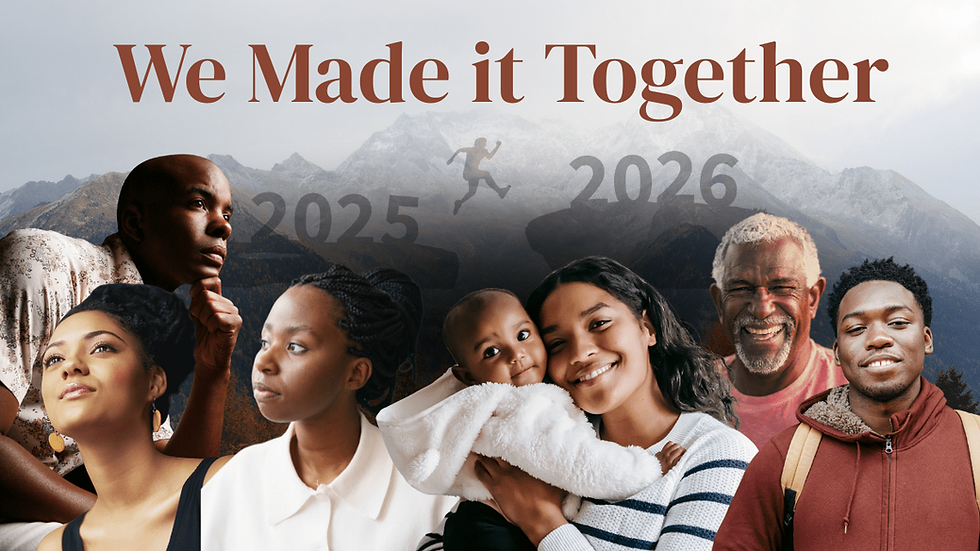A Conversation With Gary Chambers
- Black Resilience in Colorado

- Apr 26, 2024
- 3 min read

Earlier this month, the BRIC Fund hosted Gary Chambers Jr., a nationally recognized Baton Rouge social justice advocate, community organizer, social media influencer, and former U.S. Senate candidate in Colorado. After his dynamic Civic For the People community workshop, BRIC had the pleasure of speaking with him more to discuss his time in the Mile High City, the state of politics today, and his political future. We thank Gary for his partnership, and for bringing his wisdom and work to Colorado. We’re excited about future opportunities to work together and what’s to come for this trailblazing leader.
BRIC: How do you see the challenges faced in Denver and other urban areas differing from those in Louisiana?
Gary: I think the challenges are the same everywhere. The rent is high, and the wages aren’t high enough. However, Colorado has the benefit of having more forward-thinking leaders, but progress for those struggling the most is slow everywhere.
BRIC: This is your first time in Colorado. What did you learn that you didn’t know about the Mile High City?
Gary: I learned about some of the rich Black history, from Five Points to learning about the jazz scene, it gave me a richer perspective.
BRIC: What propelled you to create Civics For The People, and what do you hope these workshops achieve?
Gary: After running for office, I learned how little people know about the political process. While I was running for Congress, people would ask me questions that should be asked of a city council member. What it said to me is that people need to gain more understanding of the inner workings of government if we are going to increase civic and community participation. Some people are mad at the wrong person, so they blame the government as a whole, not knowing what part owns the issue and can make changes. You can’t change what you don’t understand.
BRIC: As an advocate for social justice, what do communities of color and organizations like the BRIC Fund need to do to ensure diverse voices are heard and represented?
Gary: They need to take a note from the BRIC Fund. It’s essential to engage with people and organizations making an impact to expand the tribe. It was my first time in Denver, but it won’t be my last.
BRIC: What motivated you to run for Senate, and what specific issues or challenges in Louisiana inspired your candidacy?
Gary: Our state is 34 percent Black, and Louisiana ranks 50th in the nation of all states. Louisiana ranks 49th regarding opportunities and 50th in the country for crime, which I believe is a direct result of a lack of opportunity for people, especially people of color. I want my daughter to live out her dreams in Louisiana if she chooses. But that isn’t possible if we don’t have and get leaders focused on creating opportunities and a more just society for all.
BRIC: How did you engage with local communities during your campaign, and what did you learn from those interactions?
Gary: We hosted backyard conversations across the state. We went into folks’ backyards and gathered groups to discuss issues. It resonated with them. People want to feel like you’re concerned about their block, and I am. The stronger the block, the stronger the neighborhood. The stronger our neighborhoods, the stronger our cities.
BRIC: What national issues do you believe collaboration across party lines is especially crucial?
Gary: A path forward on immigration. We can’t continue on the path we are on currently. We also can’t blame the president alone when Congress won’t act. Currently, DC lacks courageous leaders.
BRIC: What are your future political aspirations, and how do you see yourself contributing to the betterment of your community or the nation in the coming years?
Gary: Currently, I’m running a business and raising my daughter, Zoey. Civics for the People and other projects keep me connected and engaged. I’m 38 years old. I have time to think about what I’ll do next politically, but for now, I’m focused on getting more of us to do our part.





Comments